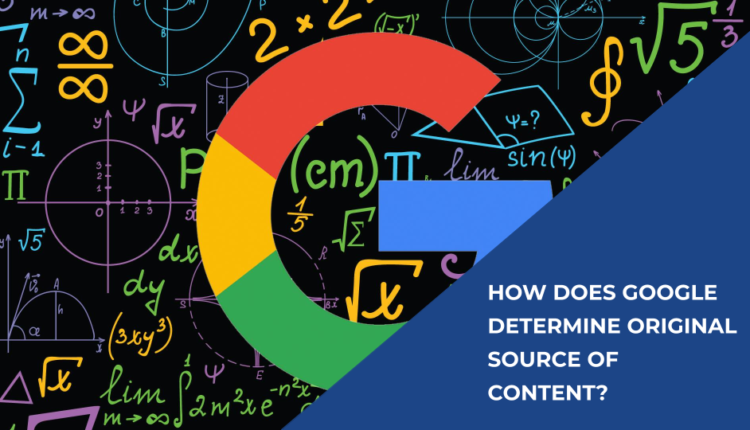You probably know that your website should always contain relevant and original content.
Google and other search engines have a list of factors that can impact where your website will rank among search results.
One of the most important and diverse factors is the content you provide. So, aside from the keywords, you use and how much text you provide on each page, the uniqueness and value of your content are also crucial.
Another issue with content is duplicated content, which, especially if you are just starting your own website, is a huge mistake. This can hurt your site ranking and your reputation.
Plagiarism, which occurs when one individual copies someone else’s work and passes it off as their own without permission. It is unacceptable both online and offline.
Furthermore, duplicate content can cause you to be penalized by Google by having your page rank lower or by having your web page removed from searches.
In other words, Google might not index some of your pages due to duplicated content. And you can see how many pages you don’t have indexed by either checking with a website checker or your Google Search Console.
Regardless, in this article, we will talk about how Google determines original content and how does it work.
Duplicated and Copied Content

1. First, What is Duplicated Content?
Here is a definition from Google:
Duplicate content generally refers to substantive blocks of content within or across domains that either completely match other content or are appreciably similar. Mostly, this is not deceptive in origin.
Google doesn’t like using the word penalty but if your entire site is made entirely of copied content – Google would not rank it. Result of that? Web pages that once ranked might not rank again – and new content might not get crawled as fast as a result.
2. Content Rule
The content rule is always the same: Google wants to reward RICH, UNIQUE, RELEVANT, INFORMATIVE, and REMARKABLE content in its organic listings – and it’s raised the quality bar over the last few years.
But the issue is that Google doesn’t have a duplicate content penalty; according to John Mueller, the lead of the Search Relations team at Google. Google will not downgrade and negatively score repeated content on a site for having a lot of duplicate content across pages. It applies some judgment about it.
Here is the exact quote:
With that kind of duplicate content, it’s not so much that there’s a negative score associated with it. It’s more that, if we find exactly the same information on multiple pages on the web and someone searches specifically for that piece of information, then we’ll try to find the best matching page.
3. Creation of Better User Experience
What Google wants is to rewards original content – it’s a great way to push up the cost of SEO and create a better user experience at the same time. So what Google is trying to figure out – it’s what are people searching for and what’s the best web page and content to answer that.
At the same time what Google doesn’t like is when ant tactic is used to manipulate its results, and copied content found on other websites is a common practice of a lot of spam sites.
The point is that if you are trying to compete with the most authentic article, you need original content that’s not found on other pages in the same form on your site, and it is more important than the similar content that is found on other pages websites.
Google isn’t under any obligation to rank your version of content – in the end; it depends on who’s the site has got the most domain authority or most links coming to the page.
The warning is that: don’t abuse this. Google still penalizes content that is intentionally duplicated in an attempt to manipulate users and as such, rankings. The worst that can happen here is that your site will be entirely removed from the search engine and not appearing in search results any longer.
Can Google Differentiate Original From Copied Content?
Another possibility that you have to consider is that others may duplicate the content on your site and try to use it without your permission.
The thing is that determining ownership of content can be difficult and tricky sometimes.
Google says that duplicate content is not penalizing your search ranking.
1. First, What is Copied Content
For example, if you select a piece of text and you put the identical text in search on Google, you can easily define if it is copied from another article, that is on the web or on other pages and that’s a pretty good sign that it is copied content.
But on another hand, if you have copied content similar to the original one you have a legal disclaimer on the bottom of your site. Which can be across all of the pages on site.
2. Legal Disclaimers
The thing is that people don’t look at that legal disclaimers and they want to find an original source of that content. They are only looking for the relevant information they need. So moreover, it’s easy to recognize copied content on pages but it’s hard to figure out what should Google do about that copied content.
So Google does not impose a penalty for duplicate content unless it appears to be deceptive or manipulative. In other words, Google will detect pretty good between a mere mistake and an attempt to cut corners and influence bots.
3. Optimizing Copied Content
Combine carefully: If you integrate your content on other sites, Google will always show on the search engines the most relevant article they think is the most appropriate for users in each given search. That means it may or may not be the version you’d prefer, but some users do.
With duplicated content, Google can help you to provide a variety of options on how to optimize it. It includes:
- No-indexing the content entirely
- Providing a link within the body of the article back to the original source
- Using a canonical tag
Copied Content May Be Relevant
Copied content may be relevant. Sometimes the person who wrote it first is not the one that is the most relevant. The copied version of your article can even beat your original one in search rankings for your target keyword.

1. The Needs to Read Between Lines
An example of that, a lot of times for we share on our own blog posts new content and put the information we want to share and someone will copy that content and they will add maybe a lot of extra information around it.
The thing is that with this Google wants to warn you that you always need to read between the lines and that is the secret about Google algorithm success.
This is certainly a surprise considering that Google always notes relevant and original content. The panda algorithm used by Google, but Google’s official position is that not all copied content is bad. If such content is well organized, useful, and is not its sole purpose to drive traffic that would be capitalized through advertisements on the website.
2. Copied Content and Values for the Users
This rating also depends a lot on the evaluator himself, but it is clear that the copied content must have some value for the user. Websites that use only copied content (whether with the permission of the original content owner or not) will not get a good position on the search engine, and a website that uses only copied content to make money through ads displayed on that page will be marked as spam. Some queries do not need to be defined.
Dictionaries or encyclopedia websites are only useful if the result provides more information to the user. Take for example a general word, such as a bank, Google will assess whether users know the meaning of the word, if it estimates that the word is known to all users then the results, ie dictionary and encyclopedia websites will be considered less useful.
So, we could say that it’s okay to have ads on the site and make money if you have content that benefits your visitors. If you made websites to make money, then these are spam websites. Google.com has low relevance By Google standards, an empty search engine with no results displayed is always off-topic and useless. Very ironic considering that the Google search engine fits this description.
However, it should be noted that there are still some cases in which internal search engines, ie results from internal search engines on websites, are considered relevant. This concludes the summary of the Google document. If you are in a niche market where everyone does relatively good SEO then you need to use very advanced SEO techniques that will comply with all the described rules that Google applies.
In the end, if someone is searching for some query, maybe they won’t find it in original source. Maybe they want to find something more elaborate… exploration of the content itself. Your content should add something to all the other information on the internet (about a certain topic). It should offer your audience something that is not offered in other blogs, articles, or websites.
So, just because something is original doesn’t mean that it’s the one that is the most relevant when someone is looking for that information.
Is Originality Overrated?
Surely you have read many times how creativity and already legendary thinking outside the box is important for success in life. But is that really so? Is creativity valued in the business world or are we all better off without it? Did you ever wonder that no ideas are original?

1. Chasing Originality
As Mark Twain once said: “There’s no such thing as a new idea. It’s impossible. We simply take a lot of old ideas and put them into a sort of mental kaleidoscope. We give them a turn, and they make new and curious combinations. […] But, they are the same old pieces of colored glass that have been in use through all the ages.” Well, we must say, he was right.
In today’s perspective, chasing originality and trying to stand out from the pack means trying to say something that’s never been said before, and it is time-consuming. Your idea doesn’t need to be original, but your extension to the existing idea should be. Borrowing the heart of an idea, giving it a little your involvement and research to bring relevance, expertise, and high-quality useful content. This can be done with all new content – creating a fresh look each time.
2. User Query and User Intent
If you want to create original content, you should only think about your audience. What do you want to tell? What is the main message? And the purpose of it? What do you want your audience to do after they’ve read your article? Do you want them to engage, convert into customers, or just to read more posts on your site? Thinking about these questions will help you to come up with originality for your post or article.
In other words, the more quality time and effort you put into creating a website, article, or blog post, the more you will be seen as an expert in the field, resulting in higher rankings.
So, you have an idea for a story, but your personal perspective and background help to discover a new angle. So you tell a story that’s been told before, but you’re offering something new and that’s is what counts the most.
What counts more about content is how it relates to a user query and user intent.
In addition to that can mean making sure that the content answers the why, how, and what type questions that are inherent in some search queries.
So maybe the next time you see something that is investigated and wrote before you should write what inspire you the most and find your own ways to create something worth reading.
Conclusion
In all of said, we want to highlight that overall it’s all about the quality and context of good content.
So, don’t waste precious time either copy-paste everything from another author or waste energy on creating something new and unexplored, rather go creative with how to shape existing ideas and known facts into a deeper understanding.
Use your uniqueness to your advantage by acknowledging it and embracing it. And better yet, it will help you stand out amongst the masses of others who are too afraid to do the same.
We hope you have enjoyed reading this article.
If you need guidance, contact us, and we are more than happy to help you!


Comments are closed.